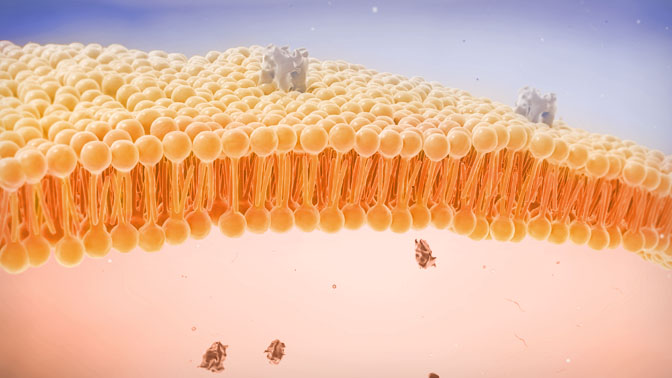
Blood stem cells are powerhouses in the body. On a daily basis, they produce over 100 billion blood cells. They are also essential to the success of bone marrow transplants, which are used to treat cancers of the blood.
Despite their importance, very little is known about what sets them apart from other blood cells.
A new study from the Princess Margaret (PM) Cancer Centre, published in Cell Stem Cell, has shed new light on what contributes to the unique functional properties of blood stem cells.
The study reveals that blood stem cells metabolize a specific fat (ie, lipid) molecule known as a sphingolipid differently than other blood cells. “The connection between lipid metabolism and blood stem cell biology is underexplored and has never been described for this class of lipids,” says Dr. John Dick, the senior author of the study.
The authors found that changing sphingolipid levels led to differences in stem cell behaviour, as well as the activity of two cell ‘programs’: the unfolded protein response pathway and autophagy. “Both of these pathways are crucial to protecting blood stem cells from damage. The unfolded protein response shuts down protein production during stressful situations and activates pathways to alleviate the stress; while autophagy cleans up damage within the cell to keep it healthy,” says the lead author of the study, Dr. Stephanie Xie, who is a scientific associate in Dr. Dick’s laboratory.
The research team also explored the application of these findings in an experimental model of stem cell transplants. They found that reducing levels of sphingolipids improved the performance of blood stem cells in this model. “Our findings, while preliminary, lay the groundwork for new strategies that may one day help to optimize the treatment of blood cancers,” says Dr. Xie.
This work was supported by the Wellcome Trust, the Medical Research Council (United Kingdom), the National Institutes of Health, The Princess Margaret Cancer Foundation, the Canadian Institutes of Health Research, the Joint Canada-Israel Health Research Program and The Terry Fox Foundation. JE Dick is a Tier 1 Canada Research Chair in Stem Cell Biology.
Xie SZ, Garcia-Prat L, Voisin V, Ferrari R, Gan O, Wagenblast E, Kaufmann KB, Zeng AGX, Takayanagi S-I, Patel I, Lee E, Jargstorf J, Holmes G, Romm G, Pan K, Shoong M, Vedi A, Luberto C, Minden MD, Bader GD, Laurenti E, Dick JE. Sphingolipid Modulation Activates Proteostasis Programs to Govern Human Hematopoietic Stem Cell Self-renewal. Cell Stem Cell. doi.org/10.1016/j.stem.2019.09.008.




